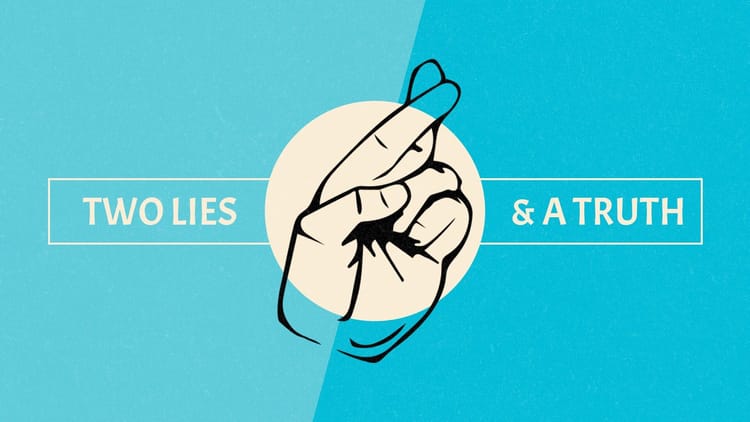Baptism

Big Idea: Baptism is a vital public step for believers to demonstrate their faith in Jesus and should occur soon after beginning to follow him.
It's getting to that time of year again. I'm not talking about Christmas; my family is approaching two significant events to commemorate. On November 25th, we celebrate the fourth birthday of our daughter, Christina. On December 22nd, we celebrate our eighth wedding anniversary and all the happiness I've experienced since then.
I've found that I tend to be very forgetful about what really matters in my life. My marriage and my role as a parent are two of the most important aspects of my life. And yet it's amazing how often I forget this in my daily life. It's easy to overlook what truly matters when making decisions every minute. And that's why I've found birthday and anniversary celebrations are wonderful occasions to reflect and to realign priorities.
You can be sure that both events will be significant in my household soon, reflecting my love and their importance. Think for a minute what would happen if I neglected these two celebrations. Probably nothing dramatic would happen – well, actually, if I forgot my anniversary, something dramatic might happen after all! But what would probably happen is that I would communicate neglect and indifference. My wife and my daughter would be discouraged. And my heart would continue to slide in an unhealthy direction. And I would also end up sleeping on the couch. That's why these two celebrations are going to be important in my life pretty soon.
I want to talk to you this morning about one of the primary celebrations of the Christian faith. There's a second practice I'll cover the first Sunday in January, but I want to cover the other one today. These two practices are sometimes called ordinances, or in some churches, sacraments – baptism and communion. These practices are crucial; they are not optional but fundamental to genuine Christian faith. You haven't fully followed Christ's teachings. You haven't yet experienced all the blessings that God has planned for your life. What's more, you're probably giving indicators of spiritual neglect and apathy within your life.
If you claim to follow Jesus Christ but haven't obeyed his ordinances, you should take this as a warning. Let's take a moment to consider what the Bible says about these ordinances or celebrations. But this morning I want to talk with you about the practice of baptism. It is the initiation rite of the Christian faith.
Baptism is when you go public as a follower of Jesus Christ, the Son of God. It's one thing to be committed to God in the privacy of your own home and heart. It's another thing to stand before hundreds of people and say, "I am now on record. I publicly proclaim myself to be a follower of Jesus Christ, and this is the primary commitment of my life." Baptism is what separates those who are spectators from those who have decided to get into the game.
I want to tell you, I love baptisms. I used to tell my church that the weeks I baptized people, they didn't have to pay me, until they began to take me seriously. But really, baptism is a public act of confessing Jesus as Savior. And it's an act that brings joy and blessing to a believer.
I want to ask five important, basic questions about baptism.
Why Should You Be Baptized?
One of the most obvious questions is why should I be baptized? This is a vital question since the idea of being submerged in a tank of water in front of hundreds of people seems illogical. It might be embarrassing. Why in the world should anyone be baptized?
The first reason you should be baptized is to follow the example of Jesus.
Mark 1:9 says, "At that time Jesus came from Nazareth in Galilee and was baptized by John in the Jordan." We read in Matthew 3:14-15:
John would have prevented him, saying, “I need to be baptized by you, and do you come to me?” But Jesus answered him, “Let it be so now, for thus it is fitting for us to fulfill all righteousness.” Then he consented.
Jesus Christ, the sinless Son of God, was baptized not for sin but in obedience to God the Father. Baptism follows the example of Jesus Christ's baptism in the Jordan River. His baptism served as an example to his followers, to us today. That's why we should be baptized.
The second reason to be baptized is to demonstrate that you really are a believer.
Early on in the Christian faith, the Roman government demanded that people pledge their ultimate allegiance to Caesar. Baptism is when someone would get up and say, "No! My ultimate allegiance belongs to Jesus Christ. He is my Savior; he's the Lord and Sovereign of my life." At the time, baptism was a subversive act; an act of civil disobedience in that society. In many countries today, people still face consequences for being baptized and declaring their faith in God. They face possible loss of jobs, livelihood, status – even torture and death. They become ostracized from their families. Why? Because baptism is a public act of confessing Jesus as Savior. It's a demonstration of your commitment to follow him. That's why you, if you are a believer in Jesus Christ, need to be baptized.
The third and perhaps most important reason to be baptized is because Christ commanded it.
And Jesus came and said to them, “All authority in heaven and on earth has been given to me. Go therefore and make disciples of all nations, baptizing them in the name of the Father and of the Son and of the Holy Spirit, teaching them to observe all that I have commanded you. And behold, I am with you always, to the end of the age.” (Matthew 28:18-20)
Jesus' last commandment recorded in the Gospel of Matthew is that we baptize followers of Jesus Christ. This is what we have been commissioned to do. In the book of Acts, everyone who responded to the Gospel was quickly baptized in obedience to Christ.
Baptism is not optional for believers in Jesus Christ. It's not something that you do when you reach a certain level of spiritual maturity. It's an act in obedience to Christ's command. It's a baby step, to be taken soon after you begin following Jesus Christ.
I promised I would answer five questions about baptism this morning. Don't worry too much when I tell you I've only answered the first one – why you should be baptized.
What Is the Meaning of Baptism?
At first glance, being immersed in front of dozens or even hundreds of people may seem perplexing. In essence, baptism is a wonderful object lesson. In itself, it doesn't save you. There is no special power in the water. But Romans 6:2-5 and Colossians 2:12 teach that baptism is a wonderful object lesson of what's happened internally. When you go all the way under the water, it symbolizes that you have been cleansed fully from head to foot. It symbolizes that you've taken a kind of spiritual bath. As you go under, you identify with Jesus in his death and burial. And as you come up, you identify with him in the Resurrection. It symbolizes your death and resurrection in Christ.
2 Corinthians 5:17 says, "Therefore, if anyone is in Christ, he is a new creation; the old has gone, the new has come!" Baptism shows what Jesus Christ has done for us. It shows that we had gone wrong – we had gone far from what God had intended. We were separated and had accumulated a debt of sin that could never be repaid ourselves. We were spiritually dead and bankrupt. And yet Jesus Christ, the Son of God, came and paid that debt for us, free of charge. He died to pay off our debt of sin; he was buried; he rose again to give us new life. And baptism is a wonderful object lesson illustrating this amazing truth.
You see, Jesus suffered for you. He was whipped, beaten, and died an agonizing death. And he's given you new life. Baptism symbolizes this. It's a public confession of Jesus as Savior and an outward symbol of spiritual baptism into the Holy Spirit.
Why Be Baptized by Immersion?
In other words, how much water does it take to be baptized? This is a question that refers to the method or the mode of baptism. There are tremendous differences in this question. Some churches practice sprinkling; some actually pour water on the one being baptized; others immerse. Certain traditions involve a triune immersion, where individuals are baptized three times—first in the name of the Father, then in the name of the Son, and finally in the name of the Holy Spirit. Here, we practice baptism by immersion, where individuals are fully submerged in water and then brought back up.
We do it for three reasons: We do it because the Greek word baptizo means "to plunge, dip, or immerse" something in water. The clear meaning of the word used in the New Testament for baptism meant being placed completely under the water. We do it because that's the way Jesus and the early Christians were baptized. Mark 1:5 tells us that people were baptized by John "in the river Jordan" – not beside, by, or near, but in. Mark 1:10 tells us that when Jesus was baptized, "he came up out of the water." Acts 8:38-39 says:
And he commanded the chariot to stop, and they both went down into the water, Philip and the eunuch, and he baptized him. And when they came up out of the water...
It appears that every baptism in the New Testament was done that way. And we do it that way because it best symbolizes our union with Christ in his death, burial, and resurrection.
Who Should Be Baptized?
Is baptism for adult believers or for newborn babies? Thoughtful Christians throughout the ages have disagreed on this question. As a church, we believe that baptism reflects the commitment of the person being baptized, as taught in Scripture. And therefore it should be restricted to someone who is mature enough to make that decision and commitment. The New Testament does not mention infant baptism, but it does have many references to the baptism of adults. Acts 2:41 says, "Those who accepted his message were baptized, and about three thousand were added to their number that day." Acts 8:12 says, "But when they believed Philip as he preached the good news of the kingdom of God and the name of Jesus Christ, they were baptized, both men and women."
And I could go on and on through the book of Acts. This is evident from the very meaning of baptism. Paul writes in Galatians 3:27: "For all of you who were baptized into Christ have clothed yourselves with Christ." He assumes that baptism is the outward sign of inward regeneration, something that could not be true of infants.
We practice parent and child dedication. When parents have a child, they stand with all of us together and promise to raise these children to know and love God. We believe that baptism is reserved for those who are old enough to make a commitment to God. If you have made a faith commitment to Christ as an adult, we believe you should be baptized now, regardless of any infant baptism you may have had. This is an expression of your choice to follow Christ. Whether or not you were baptized as an infant, you need to be baptized at the point that you make a mature faith decision.
When Should You Be Baptized?
Should a believer be baptized right away, or wait until they are more mature in their faith? The answer is simple: Get baptized as soon as you have believed!
Acts 2:41 says, "Those who accepted his message were baptized, and about three thousand were added to their number that day." Acts 8 says:
Then Philip opened his mouth, and beginning with this Scripture he told him the good news about Jesus. And as they were going along the road they came to some water, and the eunuch said, “See, here is water! What prevents me from being baptized?” And he commanded the chariot to stop, and they both went down into the water, Philip and the eunuch, and he baptized him. (Acts 8:35-38)
There is no reason to delay. As soon as you have received Christ into your life, you can and should be baptized. If you wait until you're perfect, you'll never feel good enough! If you have not been baptized, and have trusted in Christ for salvation, it would be my honor to baptize you.
I love baptisms. Baptisms strengthen my faith and should do the same for everyone baptized and for all believers who witness them. Wayne Grudem writes:
The amazing truths of passing through the waters of judgment safely, of dying and rising with Christ, and of having our sins washed way, are truths of momentous and eternal proportion and ought to be an occasion for giving great glory and praise to God. If churches would teach these truths more clearly, baptisms would be the occasion of much more blessing in the church.
I want to close this service by addressing those of you who are Christians but have never been baptized. You understand about Jesus and the cross, and you understand about baptism. But even though you understand, you're blowing it off. You have no plans to obey Christ's command to be baptized. I don't understand it. Because baptism isn't an option, it's a command. Jesus died for you, and he commands his followers to be baptized to declare their devotion to him. I don't understand how you could know this and say, "I'll become a Christian; but when it comes to this very first step of the Christian life and declaring it before the church and the world, I think I'll pass. When it comes to the first thing Jesus asks me to do – to obey him in baptism – I think I'll ignore him."
Be honest this morning. Baptism is not a casual thing. Don't play games with this. Stop putting it off. Don't let embarrassment keep you from being obedient to Jesus on this. This is a step you must take, and now is the time to take it. And we'll schedule another baptism very soon, I can promise you that.
Friends, we need celebrations to remember what's really important. I won't forget the birthdays and anniversaries in my life. But I also won't forget the date that I followed Christ in obedience to his command, and was baptized. And every time I witness or participate in another baptism, it still gives me a lump in my throat. If you haven't yet believed, or if you haven't yet been baptized as an adult believer, it's time now to act. And I pray that scores of us will pass through the waters of baptism in the months to come. And we'll tell God, when it comes to baptism and the Lord's Supper, "Whatever we do, we'll do these two."





